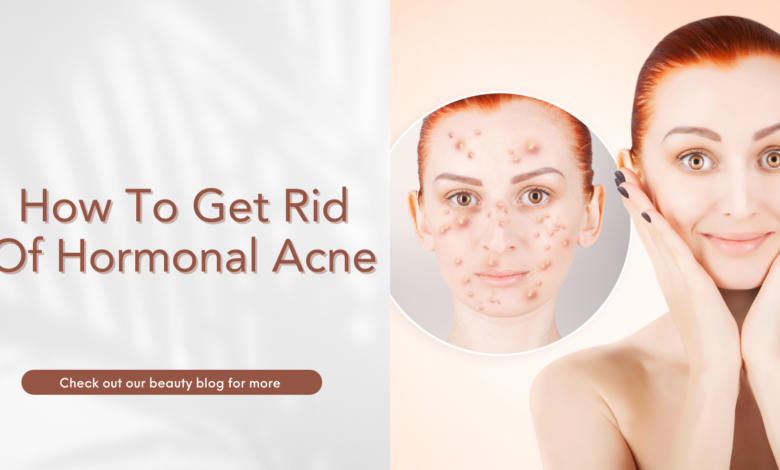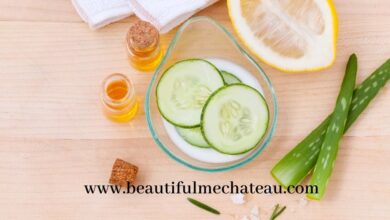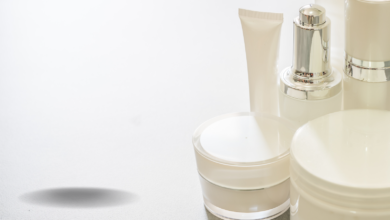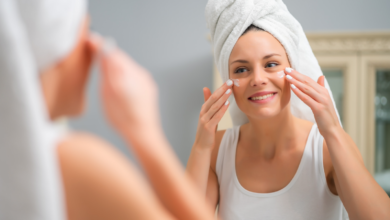
Hormonal acne can be a frustrating and confidence-denting skin condition that affects many people. Understanding its causes and finding effective ways to manage it is essential for clear, healthy skin. In this article, we’ll delve into hormonal acne, exploring its triggers, treatments, and prevention strategies.
Table of Contents
If you buy something through the links/banners here, we may earn an affiliate commission at no extra cost to you. Thank you.
Understanding Acne
Acne is a common skin problem that affects millions of individuals worldwide. Although many people believe that acne only affects teenagers, the reality is that acne can affect people of all ages. Hormonal acne, in particular, is a type of acne that occurs due to hormonal imbalances in the body.
What Is Hormonal Acne?
This is a type of acne that affects both men and women. It typically occurs during puberty, but it can also affect individuals later in life such as during menstruation, pregnancy, or menopause. It is caused by fluctuations in hormones or hormonal imbalances in the body that lead to increased sebum production, which clogs pores and leads to the development of acne. It’s crucial to differentiate hormonal acne from other types since the treatment approach can vary significantly.
In this article, we will discuss the signs and symptoms of hormonal acne, as well as effective treatment options for managing this condition.
Hormonal Acne Triggers
- Hormonal Changes During Puberty: Adolescents often experience an increase in androgen hormones, leading to oily skin and acne. This is a natural part of growing up.
- Menstrual Cycle Fluctuations: Many women notice acne flare-ups just before or during their period due to hormonal changes. This is known as menstrual acne.
- Stress and Hormonal Acne: Stress can stimulate the release of hormones that trigger acne. Managing stress is crucial for overall well-being and acne control.
How Do I Know If My Acne Is Hormonal?
The signs and symptoms of hormonal acne are similar to regular acne. However, the formal tends to be more severe, with lesions that are often large and painful. The most common areas affected by hormonal acne are the chin, jawline, and neck. One of the key differences between hormonal acne and regular acne is that hormonal acne tends to occur in a cyclical pattern, with flare-ups happening around menstruation or during times of stress.
Risk Factors
Several risk factors contribute to the development of hormonal acne. These include age, gender, genetics, medical conditions like polycystic ovarian syndrome, dietary and medications like steroids and lithium. Hormonal imbalances caused by these factors can lead to an increase in sebum production, which clogs pores and leads to the development of acne.
Dietary Factor
Your diet plays a role in hormonal balance and, consequently, acne. Avoiding high-glycemic foods and dairy can be beneficial. Incorporate more fruits, vegetables, and foods rich in omega-3 fatty acids to support skin health.
Prevention
Preventing hormonal acne requires a multifactorial approach. Dietary changes, such as reducing the consumption of processed foods and increasing the intake of fruits, vegetables, and lean proteins, can help control hormonal imbalances.
Skincare routines that include gentle cleansing and the use of non-comedogenic products can also be effective in preventing the development of acne. Stress management techniques like meditation, yoga, and deep breathing exercises may also be helpful in controlling hormonal imbalances.
Treatment
The treatment of hormonal acne involves a combination of over-the-counter medications, prescription medications, and medical procedures. Over-the-counter medications like benzoyl peroxide, salicylic acid, and retinoids can help manage mild cases of hormonal acne. Prescription medications like birth control pills, spironolactone, and isotretinoin are often prescribed for moderate to severe cases. Medical procedures like chemical peels, microdermabrasion, and laser therapy may also be effective in treating hormonal acne.
Effective Skincare Routine For Hormonal Acne
A proper skincare routine is vital. Use a gentle cleanser, exfoliate to remove dead skin cells, and choose non-comedogenic products. Moisturizing is essential, even for oily skin, as it helps maintain the skin’s natural barrier.
How To Get Rid Of Hormonal Acne Naturally
Several natural remedies can also be effective in managing hormonal acne. Tea tree oil, for example, has anti-inflammatory and antimicrobial properties that make it effective in reducing the severity of acne.
Aloe vera can also be effective in reducing inflammation and promoting healing in acne lesions. Zinc supplements and probiotics may also be helpful in reducing hormonal imbalances that contribute to the development of acne.
Lifestyle Changes
Lifestyle changes like regular exercise, getting enough sleep, and staying hydrated are also important in managing hormonal acne. Exercise can help reduce stress levels, which can trigger hormonal imbalances. Getting enough sleep promotes hormonal balance and skin cell regeneration, which is essential for healthy skin. Staying hydrated helps flush toxins out of the body, which can contribute to the development of acne.
Consulting a Dermatologist
If your acne is severe or persistent, don’t hesitate to consult a dermatologist. They can recommend tailored treatments such as laser therapy, chemical peels, or extraction of cysts.
Conclusion
In conclusion, hormonal acne is a common skin problem that affects both men and women. Although it can be challenging to manage, there are several effective treatment options available.
A multifactorial approach that includes dietary changes, skincare routines, stress management, and medical interventions can help manage hormonal imbalances and reduce the severity of acne symptoms. It is essential to consult a healthcare professional to determine the most appropriate treatment plan for your individual needs.
FAQs
Can hormonal acne be cured completely?
Hormonal acne can be effectively managed and controlled, but it may not always be completely cured, as hormonal fluctuations are a natural part of life.
How long does it take to see results from hormonal acne treatments?
Results vary, but it’s common to see improvement within a few weeks to a few months of starting treatment.
Are there any specific dietary restrictions for hormonal acne?
While there are no strict rules, reducing high-glycemic foods and dairy while increasing fruits, vegetables, and omega-3-rich foods can help.
Can stress alone cause hormonal acne?
Stress can contribute to hormonal acne by triggering hormone production, but it’s usually not the sole cause.
What should I expect during a dermatologist visit?
During a dermatologist visit, you can expect a thorough skin examination, a discussion of your medical history, and personalized treatment recommendations tailored to your specific needs.
Sharing is caring. Spread some love by sharing this post. And remember to follow us on Instagram and Facebook, or subscribe to our newsletter to stay up to date and unlock the secrets to a beautiful you.




This is such an informative post! Will share it with my friends struggling with acne.